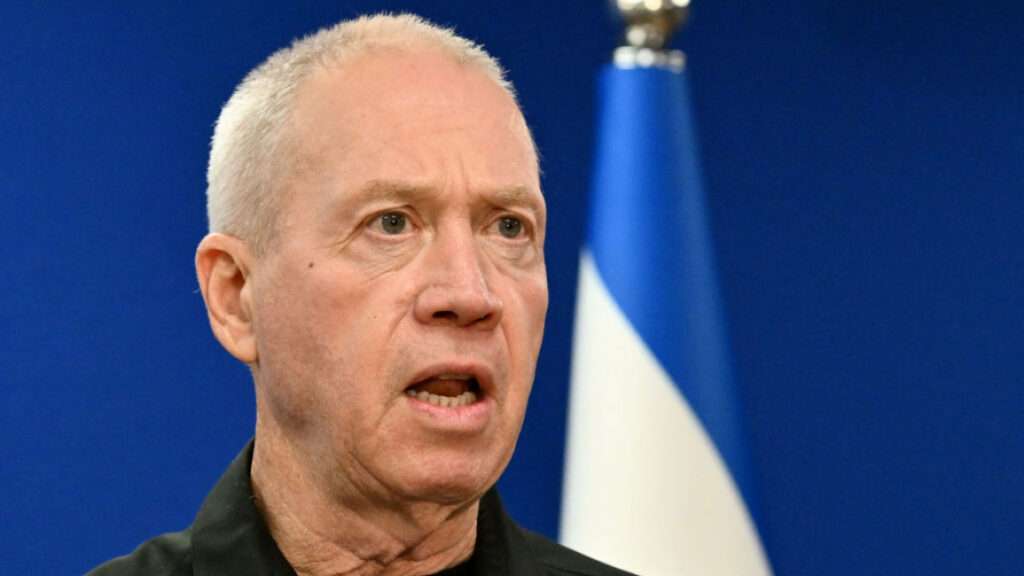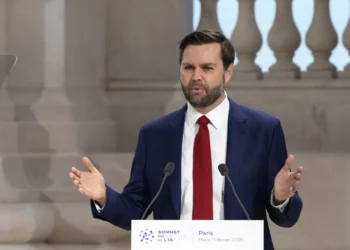The UK government has taken a bold step, diverging from its closely aligned stance with the Biden administration, by suspending certain arms export licenses to Israel.
This decision arises from mounting fears that these exports might facilitate violations of international humanitarian law amid the ongoing conflict in Gaza.
Following a two-month internal review, the Foreign Office expressed concerns about Israel’s conduct, particularly in relation to the treatment of Palestinian detainees and the delivery of humanitarian aid to Gaza.
Although no definitive conclusion has been reached regarding the direct impact of UK arms exports on the devastation in Gaza, the extensive destruction and the alarming number of civilian casualties prompted the UK to act.
This suspension affects components for military aircraft, helicopters, drones, and targeting systems, covering 30 out of the 350 existing licenses. However, a significant exemption remains for parts related to the F-35 fighter jet program, a loophole that has sparked criticism from pro-Palestinian groups.
The UK’s reasoning behind this exemption is the multinational nature of the F-35 program, where components are not exclusively under British control.
Foreign Secretary David Lammy, while acknowledging the sensitivity of this decision, emphasized that this move does not equate to a full arms embargo, nor does it reach the level of sanctions imposed by previous UK governments, such as Margaret Thatcher’s suspension of licenses in 1982. Lammy’s careful approach underscores his desire to avoid a complete breakdown in UK-Israeli relations.
Tensions with the US are anticipated following this decision, given the close military cooperation between Washington and Tel Aviv. Israeli Defense Minister Yoav Gallant voiced his deep disappointment, highlighting the timing of the decision during Israel’s multifront war against Hamas.
“This comes at a time when we fight a war on seven different fronts – a war that was launched by a savage terrorist organization, unprovoked. At a time when we mourn six hostages who were executed in cold blood by Hamas inside tunnels in Gaza. At a time when we fight to bring 101 hostages home.”
Yoav Gallant

UK Suspension Marks Diplomatic Shift
Israeli Foreign Minister Israel Katz echoed Gallant’s sentiments, expressing his dissatisfaction with the UK’s decision. He warned that this move sends a troubling signal to Hamas and its Iranian backers.
Israeli Prime Minister Benjamin Netanyahu, already facing political turmoil, is under further pressure as critics accuse him of mishandling the Gaza ceasefire negotiations, potentially exacerbating the crisis.
In his address to the House of Commons, Lammy clarified that the suspension was driven by evidence related to Israel’s treatment of Palestinian prisoners and restrictions on aid to Gaza.
He noted that Israel’s actions, particularly the widespread destruction of homes, contributed to the assessment that there is a clear risk of serious violations of international humanitarian law.
Lammy sought to reassure that this decision does not signify a final judgment on Israel’s adherence to international law, describing it as a “forward-looking evaluation” rather than a determination of guilt or innocence.
He emphasized that the UK has not and cannot arbitrate on Israel’s compliance with humanitarian law, leaving that role to competent legal authorities.
The Foreign Office’s legal advice summary highlighted Israel’s shortcomings in facilitating humanitarian access and aid distribution.
It urged Israel to establish more efficient procedures to protect humanitarian operations and adopt a less restrictive approach to items with dual military and civilian uses.
Additionally, the Foreign Office noted that while aid provided by Israel was critical, it remained insufficient for the population’s needs.
Regarding the treatment of Palestinian detainees, the summary pointed to a pattern of allegations suggesting some instances of mistreatment, which would contravene international humanitarian law.
While Israel has launched investigations into these claims, the adequacy of these efforts remains unclear.
The ongoing denial of access to detention facilities for the International Committee of the Red Cross (ICRC) also raises concerns, as international law mandates such access unless justified by “imperative military necessity.”
As such, the suspension of arms licenses marks a significant shift in the UK’s policy towards Israel, with potential ripple effects on its international alliances.
READ ALSO: Minority Demands Removal of Lands Minister Over Galamsey Crisis




















